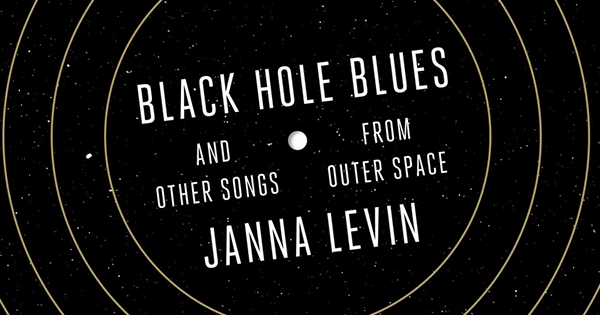Black Hole Blues
Read an excerpt from Janna Levin’s new book about the soundtrack of the universe

What does nothing sound like? Specifically, what is the sound of two nothings—two energy-sucking black holes—colliding? That’s the question at the heart of Janna Levin’s new book, Black Hole Blues and Other Songs from Outer Space, a history of the campaign to record the sounds of outer space.
As Levin writes, the Laser Interferometer Gravitational-Wave Observatory (LIGO) was founded 50 years ago to record the infinitesimal ripples that make their way to Earth after an intergalactic crash. “By the time the gravitational wave gets here,” Levin writes, “the ringing of space will involve relative changes in distance the width of an atomic nucleus over a stretch comparable to the span of three Earths.” In February of this year, scientists at LIGO finally managed to record that sound—and apparently it sounds something like a cosmic kazoo.
Read an excerpt from Levin’s account of the LIGO facility at MIT, a tiny outpost of the two main observatories, each spanning four kilometers.
Experimenters sit on the floor to sift through a bundle of cables or hunch over optics tables, or ratchet some tool or lift their goggles to focus on a bizarrely antiquated oscilloscope used for diagnostics. I swear I see a floppy disk. I promise that the caliber of the technology is mostly impressive, so I kind of gawk at the floppy disk. The physical labor and the meticulous details layer and integrate and feedback and are compounded until a machine is ultimately built. The power structure of the operation is horizontal at some strata. Everybody seems to understand the job, so the collective operates like an elaborate ant colony in constant but not necessarily rapid motion. Without pause, one thing is done and then another. The target of any one scientist’s concentration seems incredibly compressed, microscopic given the scale of the thing they’re working toward. Everyone is skilled and physically equipped for the awkward pressures on the body and the long hours. A graduate student gingerly shifts a delicate piece on an optics table. Each person contributes to the fabrication of a hypersensitive device that will be ready to record the sounds from space one hundred years—maybe plus a few—after Einstein surmised that spacetime was mutable.
They’re constructing a recording device, not a telescope. The instrument—scientific and musical—will, if it succeeds, record Lilliputian modulations in the shape of space. Only the most aggressive motion of great astrophysical masses can ring spacetime enough to register at the detectors. Colliding black holes slosh waves in spacetime, as can colliding neutron stars, pulsars, exploding stars, and as yet unimagined astrophysical spacetime cataracts. The contractions and expansions of spatial distances and of the tempo of clocks move through the universe—through the shape of spacetime—like waves on an ocean. Gravitational waves are not sound waves. But they can be converted to sound through sheer analog technology, much like a wave on the string of an electric guitar can be converted to sound with a conventional amplifier. In a less than perfect analogy, astrophysical calamities are the finger pickers, spacetime is the set of strings, and the experimental apparatus is like the body of the guitar. Or, moving up a few dimensions, astrophysical calamities are the mallets, spacetime is the skin of a three-dimensional drum, and the apparatus records the modulations in the shape of the drum to play the silent score back to us as sound. Scientists in the control room listen to the detector amplified through store-bought speakers, although they have only ever heard background noise. The “hish.” Shshshshsh.
From the book Black Hole Blues by Janna Levin, copyright © 2016 by Janna Levin. Published by arrangement with Alfred A. Knopf, an imprint of The Knopf Doubleday Publishing Group, a division of Penguin Random House LLC

